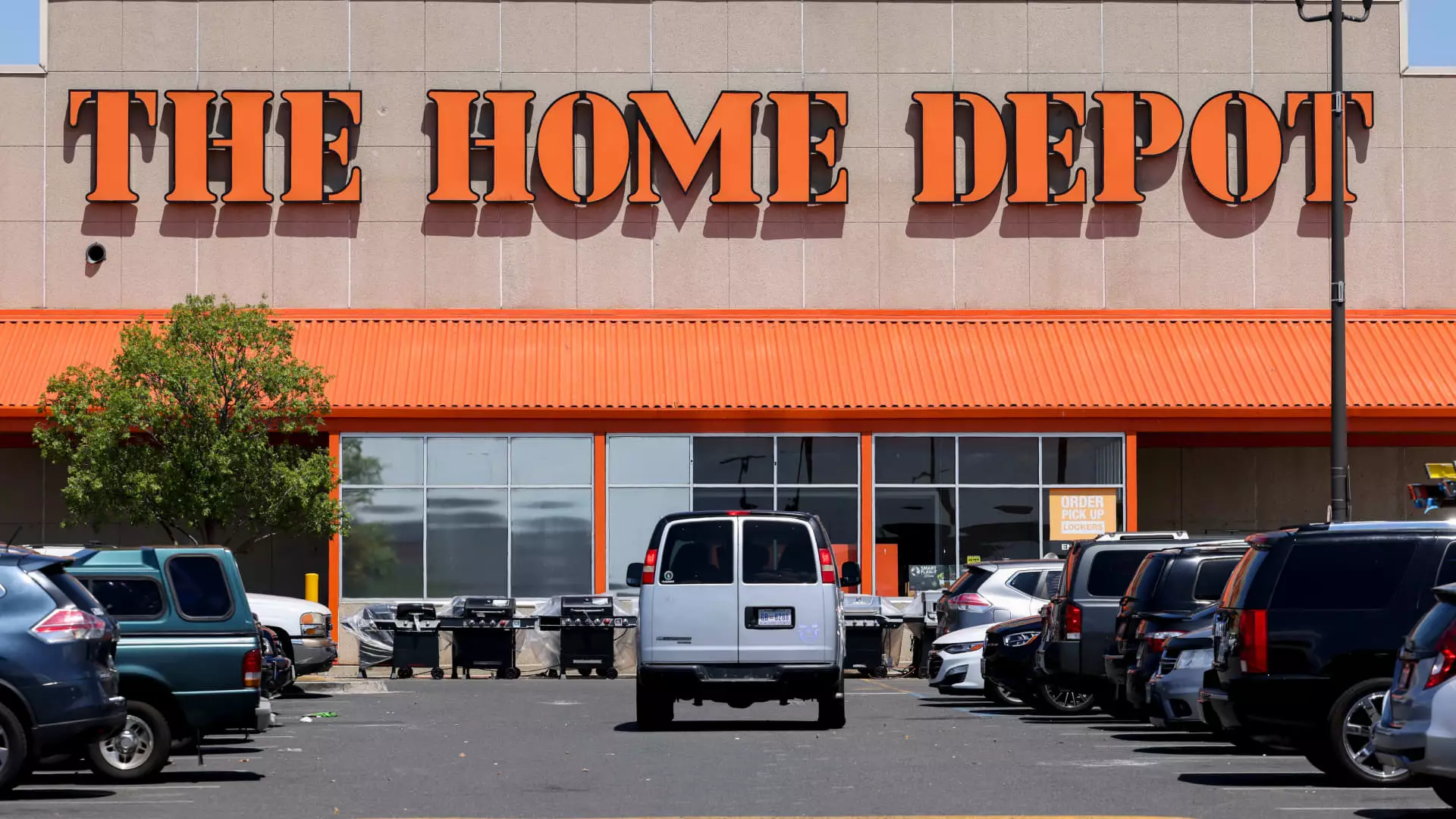Recent evaluations from Telsey Advisory Group reveal a renewed optimism surrounding Home Depot (HD), as analysts upgrade their rating to a “buy-equivalent outperform.” This development coincides with Telsey’s adjusted 12-month price target of $455 per share, up from a previous forecast of $360. This adjustment suggests a potential appreciation of approximately 14% from where Home Depot shares closed last Thursday, highlighting an emerging positive sentiment in the retail sector, particularly in home improvement.
As Home Depot prepares to announce its third-quarter earnings, analysts do acknowledge the expectation of “continued softness” in sales. However, forward-looking projections indicate robust earnings and revenue growth for 2025. Key factors driving this optimism include the anticipated decline in mortgage rates, ongoing recovery efforts from recent hurricanes, and an easier comparison window compared to the high demand experienced during the post-pandemic boom. These elements create a favorable environment for Home Depot, suggesting that the company could expand its market share amidst evolving economic conditions.
Further underscoring the retailer’s potential is Telsey’s emphasis on the expansion of Home Depot’s professional business segment. This part of their operation supports larger and more intricate projects, which could be pivotal for capturing market opportunities moving forward. Notably, analysts project that Home Depot will outperform the S&P 500 index by 2025, further enhancing investor confidence.
Broad economic indicators are contributing to Telsey’s optimism about Home Depot. Recently, the Federal Reserve has relaxed its monetary policies, including a significant interest rate cut, which is expected to stimulate the housing market. Reduced mortgage rates could enhance the potential for home renovation projects, benefiting companies like Home Depot heavily engaged with homebuilders and new homeowners. As the market adjusted post-election, Home Depot shares have already witnessed a notable increase of over 2.5% this week, reflecting the broader market rally.
Despite a recent dip due to disappointing earnings and guidance earlier in the year, analysts like Jim Cramer believe that patience will pay off for Home Depot investors. The historical lag of six to nine months typically associated with the housing market following rate cuts suggests that the effects of these monetary policy shifts might not be immediate. It emphasizes the importance for investors to focus not just on short-term earnings, which are anticipated to be underwhelming, but rather on the potential outlook and fundamental strengths of the business.
Conversely, the outlook for Best Buy (BBY) appears more complicated. Following a price target reduction from Citi, which dropped from $115 to $109 while maintaining a buy rating, concerns about political developments have emerged. The looming threat of increased tariffs on Chinese imports poses a significant challenge for Best Buy, given its substantial reliance on products manufactured overseas. With electronics and gadgets being integral to Best Buy’s inventory, the potential for elevated costs could restrict profitability in the near term.
Despite these concerns, Citi points to an AI-driven tech replacement cycle capable of sustaining earnings and comparable store sales as consumers increasingly look to upgrade their devices. This sector of retail remains largely intact, allowing Best Buy to continue to position itself effectively in the marketplace.
However, the anticipated tariffs under a potential new administration are viewed as a near-term overhang that may impede Best Buy’s growth trajectory. With shares already facing a decline of about 2.5% this week, tactical positioning is crucial, especially as the company prepares to release its quarterly results on November 26.
In summation, contrasting perspectives emerge from the current landscape of the retail sector. Home Depot’s strong fundamentals and optimistic growth projections position it favorably in the market as it navigates economic fluctuations. Conversely, Best Buy faces significant external pressures that could challenge its profitability despite existing opportunities in technology upgrades.
Investors are reminded to analyze the macroeconomic variables influencing these companies, as well as to prepare for the short-term volatility that may arise from earnings announcements and geopolitical developments. Ultimately, the differing outlooks for Home Depot and Best Buy serve as a testament to the complexity of the retail market, where diverse factors at play can significantly impact company performance.

